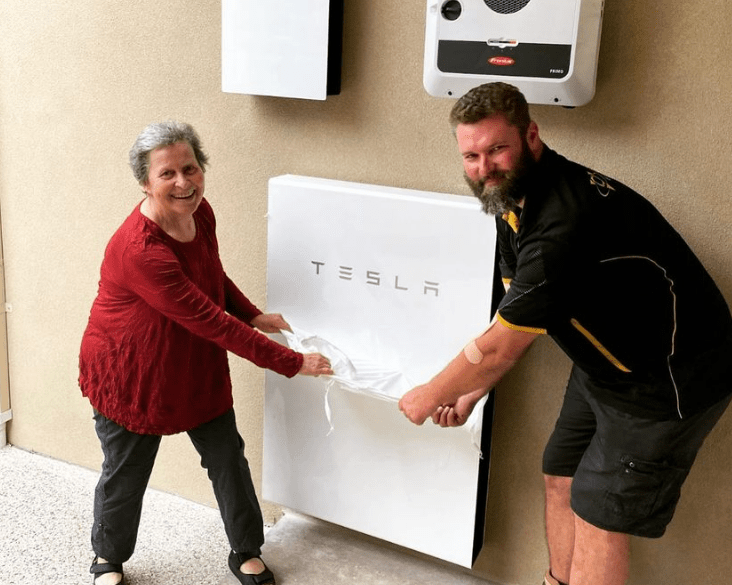
What about batteries?
There is also growing uptake on using a home battery, such as our favourite at Vortex, the Tesla Powerwall.
A Tesla Powerwall is a home battery system that stores excess solar energy for use when the sun isn’t shining or at night. By storing excess solar energy in a Powerwall, homeowners can use more of the clean, renewable energy that their solar panels generate, rather than having to purchase electricity from the grid. This can potentially save homeowners money on their monthly electricity bills, particularly if they live in an area with high electricity prices.
In addition to helping homeowners save money on their electricity bills, a Tesla Powerwall can also help to protect them against rising electricity prices. Because the Powerwall allows homeowners to use stored solar energy instead of purchasing electricity from the grid, they are less vulnerable to fluctuations in the price of grid electricity. This means that even if electricity prices rise in the future, homeowners with a Powerwall may be able to continue using clean, renewable energy at a fixed cost, rather than having to pay more for grid electricity.
Self-consuming your solar generation refers to using the electricity that your solar panels produce directly, rather than selling any excess electricity back to the grid. There are a few reasons why it can be beneficial to self-consume your solar generation:
- Cost savings: By using the electricity that your solar panels produce, you can potentially save money on your monthly electricity bills. This is because you will be using clean, renewable energy that you are generating yourself, rather than having to purchase electricity from the grid.
- Increased energy independence: Self-consuming your solar generation can help you to become more energy independent and reduce your reliance on the grid.
- Increased sustainability: By using the electricity that your solar panels produce, you can reduce your carbon footprint and contribute to a more sustainable energy system.
That being said, self-consuming your solar generation is not always the best option in every situation. For example, if you generate more solar electricity than you can use, it may make financial sense to sell the excess back to the grid (although feed in tariffs are now generally super low!), depending on the rates that your utility offers for excess generation. It’s worth considering all of your options and discussing them with a professional to determine the best course of action for your specific situation.
